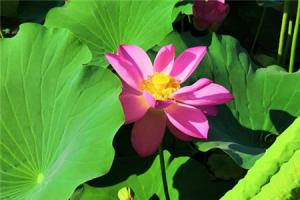When to Plant Fruit Trees in East Tennessee
East Tennessee is known for its warm, humid climate, which is ideal for many fruit trees to thrive. Planting a fruit tree in your backyard can not only provide delicious, fresh fruit, but it can also add beauty to your landscape. However, planting fruit trees at the wrong time can lead to poor growth and development. So, when is the best time to plant fruit trees in East Tennessee?
Timing is Everything
The ideal time to plant fruit trees in East Tennessee is during the dormant season, which is typically from late fall to early spring, when the tree is not actively growing. This allows the tree to focus on root growth, establishing a strong foundation for future growth and fruit production. Planting during the dormant season also reduces the risk of transplant shock when the tree is moved from the nursery to your yard.
Choosing the Right Tree
Before planting a fruit tree, it's important to choose the right variety for your area. East Tennessee's climate is suitable for a wide range of fruit trees, including apple, peach, pear, cherry, plum, and apricot. However, some varieties may be better suited than others, depending on factors such as soil type and pH, amount of sunlight, and climate conditions. It's best to consult with a local nursery or extension office to determine which trees will thrive in your specific location.
Preparing the Soil
Proper soil preparation is key to a healthy fruit tree. Begin by testing the soil pH and making any necessary adjustments to ensure it falls within the ideal range for your chosen tree. It's also important to clear the planting area of any grass, weeds, or debris, and amend the soil with organic matter such as compost or aged manure. This will improve soil structure, drainage, and nutrient availability, promoting healthy root growth and overall tree health.
Planting the Tree
When planting the fruit tree, dig a hole that is two to three times wider than the tree's root ball, and deep enough so that the graft union (the bump where the tree was grafted onto the rootstock) is slightly above ground level. Backfill the hole with soil, and tamp it down gently to remove any air pockets. Water the tree thoroughly and add a layer of mulch around the base, taking care not to mound it up against the trunk. Mulch helps retain moisture, suppress weeds, and regulate soil temperature, all of which can benefit the tree's growth.
Caring for the Tree
To ensure the health and longevity of your fruit tree, it's important to provide proper care throughout its life. This includes regular watering, especially during dry spells, and fertilizing with a balanced fertilizer once or twice a year. Prune the tree annually to remove damaged or diseased wood, and to promote air circulation and sunlight penetration. Pest and disease control may also be necessary, depending on the type of fruit tree and local conditions. Finally, be patient – it may take several years for a newly planted fruit tree to produce fruit, but with proper care, it will be worth the wait!
Conclusion
Planting a fruit tree in East Tennessee can be a rewarding experience, providing both beauty and fresh, delicious fruit for years to come. By planting at the right time, choosing the right variety, preparing the soil, planting the tree correctly, and providing proper care, you can ensure the success of your fruit tree and enjoy its bounty for years to come.

 how many times do yo...
how many times do yo... how many planted tre...
how many planted tre... how many pine trees ...
how many pine trees ... how many pecan trees...
how many pecan trees... how many plants comp...
how many plants comp... how many plants can ...
how many plants can ... how many plants and ...
how many plants and ... how many pepper plan...
how many pepper plan...































